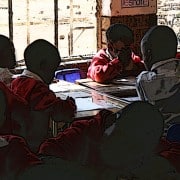|
Getting your Trinity Audio player ready...
|
In its latest report released today, Corruption Watch spotlights the 1 591 brave whistle-blowers who have exposed corruption in different sectors across the country, suggesting a determination to continue to act in the face of widespread corruption in South Africa. The 2019 Analysis of Corruption Trends Report, the third edition of this half-yearly publication, also reveals that for the first time, corruption in the police sector has overtaken other sectors such as schools, health and local government.
David Lewis, executive director of Corruption Watch, commented: “These reporting data have guided us in our decision to intensify our engagement with the policing and health sectors. Where policing is concerned we are presently building an easily accessible platform that will provide basic information about every police station in the country, thus enabling communities to rate the performance of, and hold accountable, their police stations.”
The increase in corruption reports in both the police and health sectors are most likely the result of focused Corruption Watch campaigns in these areas that are intended to bring to light and address specific systemic corruption challenges. For example, in the South African Police Service (SAPS), the leading forms of corruption are abuse of power and bribery, which stand at 35.7% and 30.6% respectively. The impact of the network of patronage within the SAPS frequently protects those engaged in corrupt activities, but makes more vulnerable those trying to expose corruption in this critical sector.
“If we are to tackle corruption, and many other social ills like gender-based violence it is necessary that there be trust in the police,” Lewis added. “But the police have to earn that trust. By providing a mechanism for accountability we are hoping to contribute to building trust between the communities and the police.”
Turning to corruption in schools, the most common form of corruption relates to embezzlement of funds and theft of resources, which totals 30.6% of all reports in this sector. This is often at the hands of principals, school officials and school governing body members who deploy elaborate schemes to steal funds and divert resources that are intended to enhance learner education and environment. This constitutes a violation of human rights at the most fundamental level.
At the local government level, unsurprisingly the most corruption reports relate to procurement irregularities in municipalities, which take the form of rigged procurement processes, exclusion of bidders in favour of family and friends, and inflated prices, to name a few. These reports make up 35.5% of reports in this sector.
Of equal concern is the worrying increase of reports of corruption in health facilities throughout the country, with the most prevalent form being employment irregularities followed by procurement irregularities, at 33.3% and 15.1% respectively. The reports indicate that employees of clinics and hospitals are at the centre of both forms of corruption, where there is little external influence or oversight. Those at the receiving end are patients who depend on access to vital health services, and are subsequently also denied their basic human rights.
The work of Corruption Watch has over the past year focused increasingly on the police and health sectors. Regarding the former, two previous reports have highlighted the extent to which confidence in the police has been eroded due to corruption, not only in South Africa but at a sub-Saharan level as well, as indicated in the Global Corruption Barometer – Africa, and in the locally-focused report on Corruption in Uniform. Activities include engagement dialogues with both the SAPS and communities to face the challenges head on. As part of its broader health campaign, the civil society organisation is involved in improving transparency in the health sector through addressing issues of open contracting.
Corruption Watch is encouraged by the resilience of whistle-blowers who are instrumental in outing corruption at all levels, thereby sending a resounding message to those in power to clean up their act or face the consequences. The organisation has multiple channels to enable people to report corruption, the most commonly used of which are the Corruption Watch website or the toll-free number 0800 023 456.
Contact:
Patience Mkosana patiencem@corruptionwatch.org.za 072 992 8380








